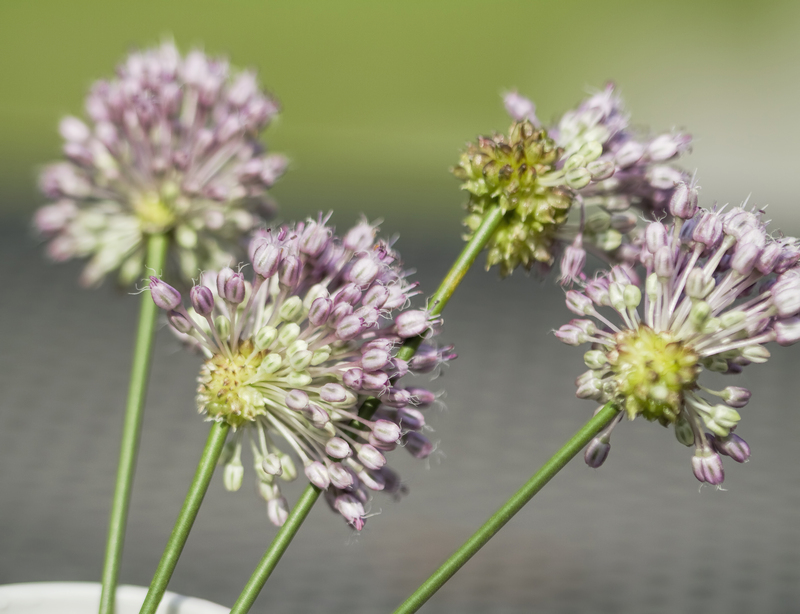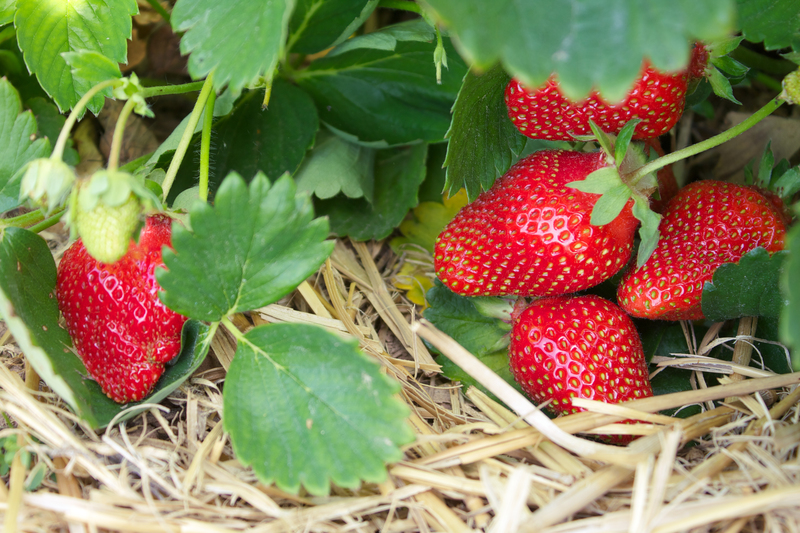The Green Revolution: Organic Waste's Journey to Rich Soil
Posted on 09/06/2025
The Green Revolution: Organic Waste's Journey to Rich Soil
Imagine a world where every banana peel, coffee ground, and wilted lettuce leaf is not just garbage, but a valuable resource that nourishes the Earth. This is the premise of the modern Green Revolution--an era where organic waste is reinvented, making its way from kitchen scraps to the source of abundant, healthy crops. In this comprehensive guide, we explore organic waste's journey to rich soil, unveiling its pivotal role in sustainable agriculture and the future of our ecological well-being.

Understanding the Green Revolution and Organic Waste Management
The original Green Revolution of the mid-20th century brought increased food production through chemical fertilizers and pesticides. But now, a new Green Revolution is under way--one that champions sustainability, soil health, and natural cycles.
What is Organic Waste?
Organic waste refers to any biodegradable material derived from plants or animals. Unlike synthetic waste, organic materials can be broken down by microorganisms, ultimately nourishing the Earth when properly managed.
- Kitchen scraps (fruit and vegetable peels, coffee grounds, eggshells)
- Lawn clippings and yard trimmings
- Paper towels and napkins (unbleached, non-toxic)
- Wood shavings and sawdust
- Animal manure
Why Is Organic Waste Management Important?
Improper disposal of organic waste leads to landfill overcrowding and the emission of greenhouse gases, especially methane. However, when we divert organic waste from landfills and transform it into nutrient-rich soil, we close crucial ecological loops, sequester carbon, and boost food security. This process also underpins the concept of a circular economy, where waste becomes a resource instead of a burden.
The Journey Begins: Collection and Separation of Organic Waste
Efficient organic waste management starts at the source--in our homes, businesses, and agricultural operations.
The Importance of Source Separation
One key to success is keeping organic materials separate from plastics, metals, and hazardous wastes. Contamination makes processing difficult and reduces the quality of the resulting compost or soil amendment.
- Household Participation: Set up dedicated kitchen bins for food scraps and encourage regular emptying into green bins or compost tumblers.
- Community Programs: Municipal green waste collection programs streamline collection, diverting tons of potential compost from landfills each year.
- Agricultural Initiatives: Farms repurpose crop residues, animal manure, and processing by-products into valuable soil amendments.
Transformation: Composting and Decomposition
The heart of the organic waste journey to rich soil is the composting process. This is where nature's recyclers--microbes, fungi, worms, and insects--break down organic matter into humus, the building block of fertile soil.
What is Composting?
Composting refers to the controlled biological decomposition of organic waste under aerobic (oxygen-rich) conditions, yielding a stable, dark, crumbly substance full of nutrients and beneficial organisms.
Types of Composting Systems
- Home Composting: Backyard piles, tumblers, vermicomposting (using red worms), and bokashi fermentation are small-scale methods ideal for households.
- Community and Industrial Composting: Large-scale windrows, aerated static piles, and in-vessel systems can process vast quantities of organic waste efficiently.
The Science of Decomposition
The transformation from organic waste to rich soil occurs through complex interactions:
- Microorganisms--bacteria and fungi--break down carbohydrates, proteins, and fats.
- Earthworms and insects fragment larger materials and mix the compost, enhancing aeration.
- Optimal decomposition requires balancing "browns" (carbon-rich materials like leaves and cardboard) and "greens" (nitrogen-rich items like food scraps and grass clippings).
- Moisture and oxygen are monitored to keep the heap active and odor-free.
- Within a few months, raw waste becomes mature compost--dark, sweet-smelling, and teeming with life.
The Role of Organic Waste in Soil Health and Sustainable Agriculture
Why is enriching soil with composted organic waste so revolutionary? It goes far beyond just providing nutrients.
Key Benefits of Organic Compost
- Enhances Soil Fertility: Supplies essential macro- and micronutrients, reducing the need for synthetic fertilizers.
- Improves Soil Structure: Adds organic matter, boosting water retention, aeration, and root penetration.
- Supports Microbial Diversity: Healthy compost teems with beneficial bacteria and fungi that suppress soil-borne diseases.
- Reduces Erosion: Better-structured soil is less prone to runoff and loss of valuable topsoil.
- Sequesters Carbon: Storing organic matter in the soil locks away carbon, helping fight climate change.
- Restores Degraded Soils: Marginal or polluted lands can be revitalized through regular additions of quality compost.
Organic Waste Cycling in Nature
In natural ecosystems, organic matter continuously cycles from plants and animals back into the soil through decay and decomposition. Mimicking these cycles in agriculture creates resilient, self-regenerating systems where external inputs are reduced and outputs (food, fiber, fuel) are maximized.
From Rich Soil to Bountiful Harvests
Once organic waste has completed its journey to rich soil, its impact is immediately visible in lush gardens, vibrant farms, and healthy ecosystems.
How Compost Nourishes Plants
- Gradual Nutrient Release: Unlike chemical fertilizers, compost provides a slow, steady release of nutrients, tailored by plant growth needs.
- Reduced Disease and Pest Pressure: Diverse soil biota foster plant immunity and outcompete harmful pathogens.
- Improved Crop Quality: Fruits and vegetables grown in compost-enriched soil often show higher nutrient density and enhanced flavors.
- Lower Water Demands: Healthy, humus-rich soils hold more moisture, supporting crops during dry periods.
Case Study: Urban Community Gardens
Many city gardens have embraced composting, turning neighborhood food scraps into black gold. By closing the loop locally, these initiatives:
- Reduce municipal waste disposal costs
- Educate residents on soil health and sustainability
- Enhance food security and green urban spaces
Overcoming Challenges in Organic Waste Recycling
While the benefits are clear, significant barriers still stand in the way of a complete organic waste to rich soil revolution.
Contamination Issues
Plastics, metals, and chemical residues in waste streams degrade compost quality. Proper education and source separation protocols are essential.
Infrastructure Gaps
- Insufficient collection: Not all communities have green bin programs; many still lack composting facilities.
- Lack of incentives: Subsidies and legislation can encourage both producers and consumers to prioritize organic waste recovery.
Odor and Pest Control
Poorly managed compost piles can attract rodents or produce unpleasant smells. Following best practices--correct ratios, proper aeration, and containment--mitigates such risks.
The Future: Expanding the Green Revolution
Moving forward, the potential to scale organic waste recycling--from individual households to national policy--remains vast and largely untapped.
Emerging Technologies
- Smart Bins: Equipped with sensors to encourage correct disposal and monitor compost conditions.
- Bio-digesters: Convert organic waste into compost and biogas for renewable energy.
- Advanced Sorting Facilities: Use AI and robotics for efficient separation, cutting contamination rates.
Policy and Education
- Zero waste initiatives mandate organic waste diversion at municipal and corporate levels.
- Public campaigns build awareness of composting's impact on landfills, climate, and food security.
- School gardens teach children about the journey from organic waste to fertile soil and onward to their dinner plates.

How You Can Join the Green Revolution
Everyone has a role to play in the movement to transform organic waste into thriving soil.
- Start a compost bin at home or join a community project.
- Separate your food waste from recyclables and landfill items.
- Choose locally-grown produce from regenerative farms committed to healthy soil practices.
- Advocate for green initiatives in your neighborhood, municipal government, or workplace.
Conclusion: Reimagining Waste as Wealth
As the Green Revolution evolves, we are challenged--and inspired--to rethink our definition of waste. Each orange peel, pile of leaves, or coffee filter is not trash, but a promise to the future: a step closer to sustainable agriculture and a healthier planet. By joining the movement to turn organic waste into rich soil, we close the loop, honor nature's wisdom, and sow the seeds of abundance for generations to come.
Start with your next meal--save those scraps, and let them begin their journey!
Latest Posts
Blueprints for a Sustainable Future through Gardening
Blending Canine Fun with Floral Beauty
Unlock Your Gardening Potential with Essential Tools

